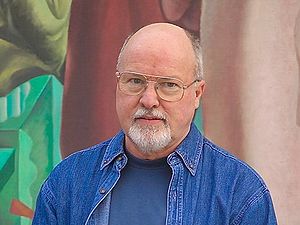In the continuing saga that is this book I’m dipping my foot into from time-to-time, the author picks up the ideas of the Church needing men and men needing the Church – the why, how, for what purpose, and all that. Here is a bit from the author concerning what the Episcopal Church in its Anglican Faith has to offer men for today (well, “today,” as the author wrote, was 1917 through the final publishing date of the book, which was into the 1940’s) and why men should be a part of the Church:

Image via Wikipedia
“…And because, if they do not [participate], they will lose sight of the central fact of Christianity and that is the life, work, and death of Jesus Christ, who reveals God to man.
“The Church believes that the man wishes to know why the great gift of life was given him, how he may see beyond the affairs of the moment, what is expected of one so richly endowed in mind and heart, what share he has in the improvement of the race, what he must do to enrich his own living, what thoughts he must think in order to understand his own relation to God and the world, what efforts he must make to gain real and durable satisfaction, what he may do to avoid the devastating sines, to whom he may appeal to quiet his conscience, how he may gain comfort in time of loss, how he must estimate necessary sacrifices, what powers he may appropriate to expand life and purpose, what unfading compensations there are for righteous effort and finally what his destiny is to be.
“The Church is the guardian of all this knowledge. Imperfectly as it may teach such truths, nevertheless that truth is its treasure.
“If this treasure of truth is drawn upon, men will enlarge their vision and fortify their lives.”
Now, I will certainly say that all the above is as appropriate and applicable for women as for men, but this book is addressed to men, specifically.
I will also say – which will be a bit of a counter to so much of what I experienced in my career in higher-education working with those enthralled with and dominated by identity-politics – that if we are to know fully how all this works and to realize it all in our lives truly, we need to admit that there are unique ways of appropriation and experience for men and for women. The sexes do not experience things the same and if we demand that they do then we lesson the full human experience.








